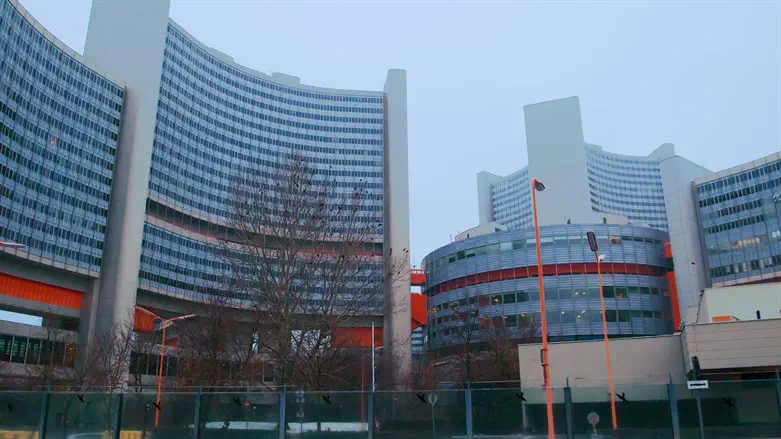Almost Heaven
Well-known
Western powers are preparing to push the International Atomic Energy Agency (IAEA) board at its upcoming quarterly meeting to declare Iran in breach of its non-proliferation obligations, Reuters reported on Friday, a step not taken in nearly 20 years and one expected to significantly escalate tensions with Tehran.
Diplomats indicate that the move is likely to further complicate ongoing talks between the United States and Iran aimed at imposing fresh restrictions on Iran's rapidly advancing nuclear program. The United States and its European allies - Britain, France, and Germany (E3) - have previously sponsored resolutions calling on Iran to address issues such as uranium traces found at undeclared sites.
The IAEA is expected to release its quarterly reports on Iran before the board meeting, which commences on June 9. A comprehensive report, demanded by a November resolution, is anticipated to be critical of Iran's cooperation. "We expect the comprehensive report to be tough, but there were already no doubts over Iran not keeping its non-proliferation commitments," a European official stated.
Following the report's release, the United States will draft a resolution text formally declaring Iran in breach of its safeguards obligations. This draft will be discussed with board member countries before being formally submitted by the four Western powers.
The last time the IAEA board formally declared Iran in breach of its safeguards obligations was in September 2005, amidst a diplomatic standoff over clandestine nuclear activities. While Iran denies ever having had a weapons program, asserting its nuclear technology is for peaceful purposes, the United States and IAEA believe Iran had a secret, coordinated nuclear weapons program that was halted in 2003.
A senior Iranian official conveyed to Reuters that Tehran would react to a resolution by "expanding nuclear work based on (the content of) the resolution." Iran has a history of responding to IAEA criticism by accelerating its uranium enrichment program or restricting inspectors.
Iran is currently enriching uranium to up to 60% purity, which can be further enriched to weapons-grade levels. According to an IAEA yardstick, Iran possesses enough material at this purity, if further enriched, for six nuclear weapons.
While the resolution's passage is widely expected, its immediate effect is anticipated to be on the ongoing talks between Tehran and Washington, and any further nuclear steps Iran decides to take on the ground.

 www.israelnationalnews.com
www.israelnationalnews.com
Diplomats indicate that the move is likely to further complicate ongoing talks between the United States and Iran aimed at imposing fresh restrictions on Iran's rapidly advancing nuclear program. The United States and its European allies - Britain, France, and Germany (E3) - have previously sponsored resolutions calling on Iran to address issues such as uranium traces found at undeclared sites.
The IAEA is expected to release its quarterly reports on Iran before the board meeting, which commences on June 9. A comprehensive report, demanded by a November resolution, is anticipated to be critical of Iran's cooperation. "We expect the comprehensive report to be tough, but there were already no doubts over Iran not keeping its non-proliferation commitments," a European official stated.
Following the report's release, the United States will draft a resolution text formally declaring Iran in breach of its safeguards obligations. This draft will be discussed with board member countries before being formally submitted by the four Western powers.
The last time the IAEA board formally declared Iran in breach of its safeguards obligations was in September 2005, amidst a diplomatic standoff over clandestine nuclear activities. While Iran denies ever having had a weapons program, asserting its nuclear technology is for peaceful purposes, the United States and IAEA believe Iran had a secret, coordinated nuclear weapons program that was halted in 2003.
A senior Iranian official conveyed to Reuters that Tehran would react to a resolution by "expanding nuclear work based on (the content of) the resolution." Iran has a history of responding to IAEA criticism by accelerating its uranium enrichment program or restricting inspectors.
Iran is currently enriching uranium to up to 60% purity, which can be further enriched to weapons-grade levels. According to an IAEA yardstick, Iran possesses enough material at this purity, if further enriched, for six nuclear weapons.
While the resolution's passage is widely expected, its immediate effect is anticipated to be on the ongoing talks between Tehran and Washington, and any further nuclear steps Iran decides to take on the ground.

Diplomatic showdown looms: Western powers eye Iran nuke breach at UN watchdog
Western powers are poised to declare Iran in breach of non-proliferation obligations at the upcoming IAEA board meeting, a move anticipated to strain US-Iran talks and anger Tehran.
